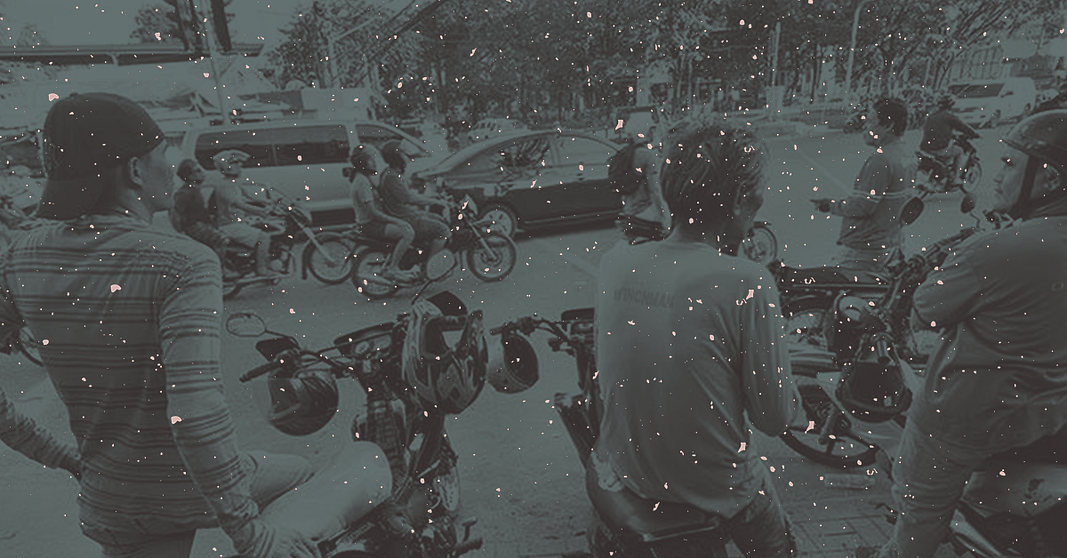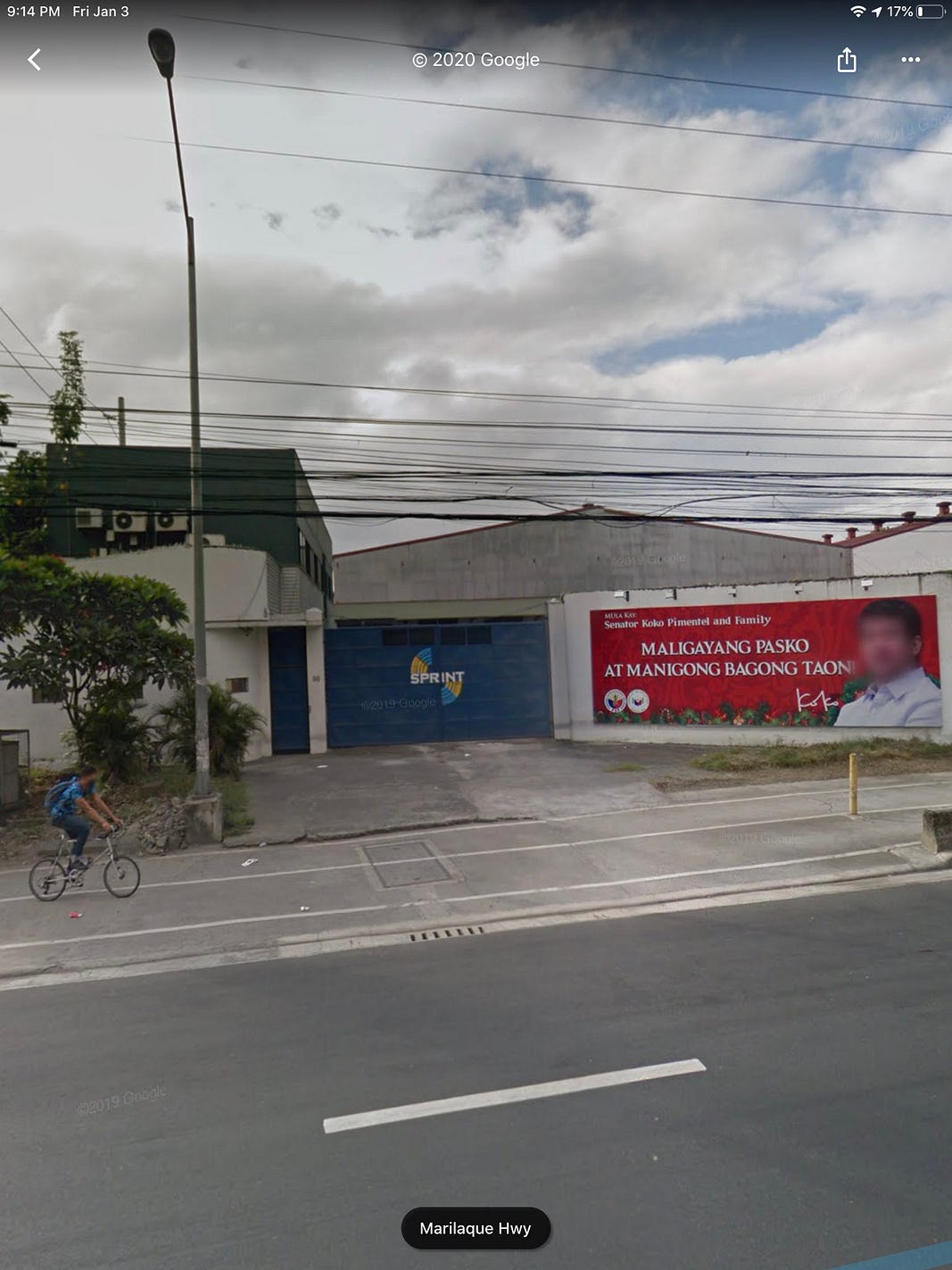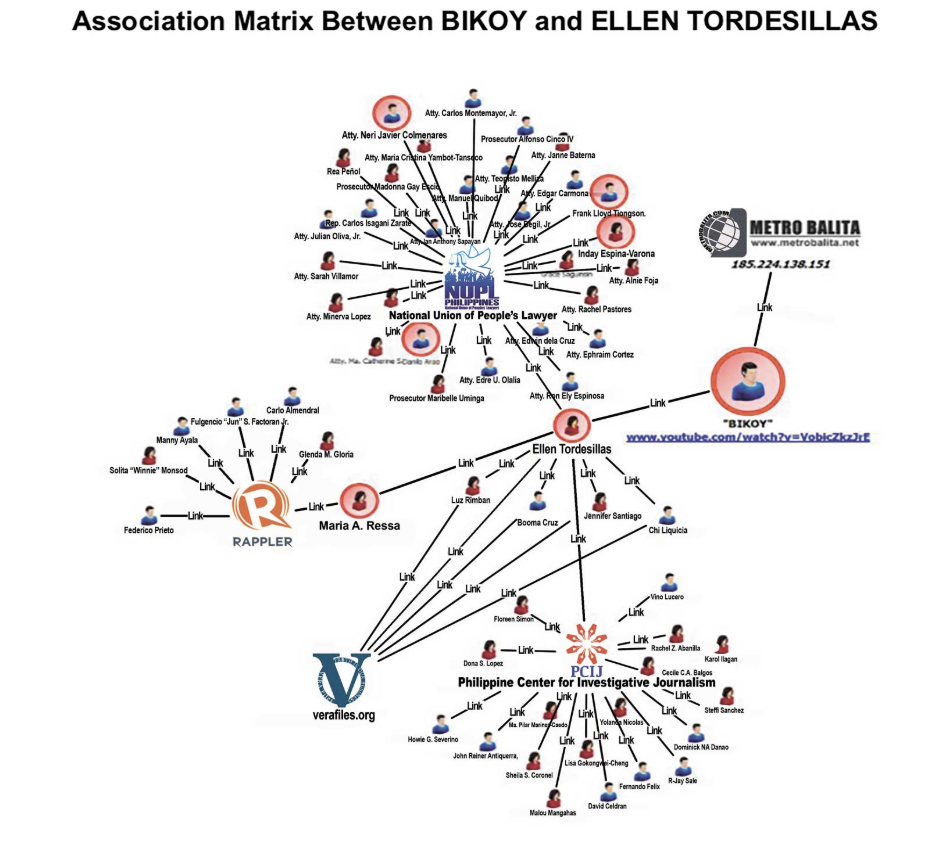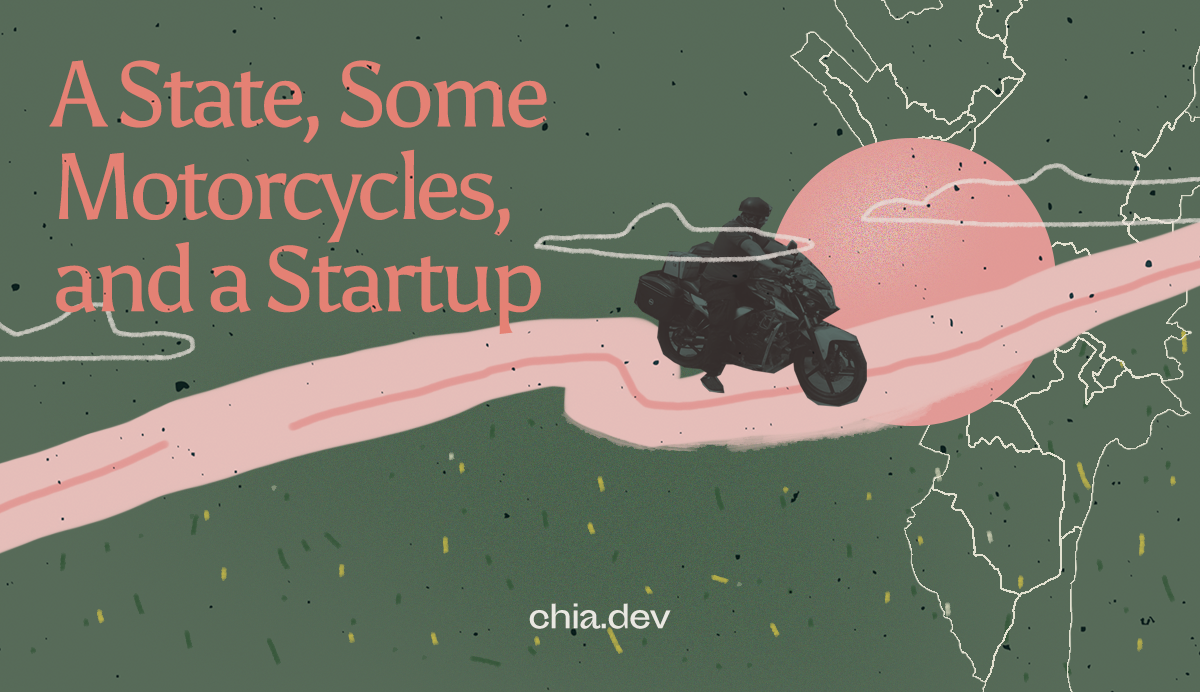Despite promises to improve the worsening chaos of Manila’s traffic, the Philippine government continues to war with Angkas, showing its true colors.
“What do they mean by transportation crisis?” says Presidential Spokesman Salvador Panelo after the breakdown of the LRT-2, a transport line serving 200,000 passengers across Metro Manila. It was eventual that the country would want to slip and weave past the ever-worsening traffic, and with it, the government’s unfulfilled processes. So came motorcycles, a mess, and a discovery of what a startup is.
Traffic in Manila has become an embedded symbol of our nation’s failed systems. Heavily urbanized over the past few decades, the Philippines’ central collection of metropolitan areas contains some of the world’s densest cities; home to near 13 million people — not yet including Filipinos in surrounding cities who commute in and out daily for work. Waking up at 4AM to head to work four hours later isn’t an uncommon story. Think of L.A. traffic to another extreme.
With these gridblocks, it’s estimated that Php3.5 billion or about 680 million dollars is wasted daily because of lost opportunity. Recent government attempts to improve the situation have been notorious for prioritizing mobility for private vehicles, disregarding the public commute despite it being responsible for more than 80% of trips. Manila, one of the cities within the metropolitan aggregate, is known for having the world’s worst traffic and being the most dense — according to Waze, reporting the travel experience on a satisfaction scale of 1 to 10 as a 0.4 on Manila’s streets.
Traveling three miles in Manila can take up to two hours.

The motorcyclist’s opportunity
With over 1 million motorcycles in Metro Manila, there were certainly more opportunities to get around. Angeline Tham, a serial entrepreneur had enough of it. Familiar with the rising technology and transportation space with her time at Grab (essentially the Uber of Southeast Asia that still holds what is practically a ridesharing monopoly today after their shutdown) — she decided to launch Angkas (meaning to ride with another in Tagalog)after the former had closed down their motorcycle services, fed up with the situation of transport in Manila.
When 1 in 3 Filipino families own a motorcycle and half of them depend on it for a living, a statistic that Tham and co-founder George Royeca gushed about, it seemed like an almost natural solution.
On the other end, it’s hard to ignore the innate risks with the venture. About 70% of traffic-related incidents in the country involve injured motorcyclists, also claiming 50% of road deaths. Another pressing problem was that this dreamy 1 in 3 family chunk neglected how more than half of motorcycles in the country are actually unregistered, thus ineligible to join in the Angkas fleet. Beyond all of this was the complication of education. In turn, this meant the question of safety and reliability with the growing uncertainty on viability of motorbiking as a commute alternative in the first place.
With a fleet of over 20,000, it may have seemed like a small start. But Angkas was revolutionary in making its mark: resonating across millennials of all class levels, hilarious social media tapping into the hearts of Filipinos (no other local company can call you panget — Tagalog for ugly — while making you adore them), it was impossible not to love them. With over three million downloads and with ride fares being as low as Php50 (1 USD) while frequently being a speedier option than commuting, it was beloved; they delivered the freedom of movement that Manila deserved. Traffic was a constant of Manila life, but this did not mean that people had grown tolerant of it.
A story of shutdowns
I’m not sure exactly how many times Angkas has been shut down behind the scenes (and quite frankly, we’re unsure if anyone else does — really), but we know that it’s far too much. In November 2017, board member Aileen Lazada of the Land Transportation Franchising and Regulatory Board (LTFRB) apprehended 19 Angkas riders without proper documents, giving the company 3 days to “explain why they should continue to operate”. The company ceased operations voluntarily. Eleven months later in September 2018, Angkas returned after being granted a plea against the government shutdown. December 2018, the Supreme Court issues a temporary restraining order against Angkas’ plea, threatening the arrest of any motorbikers. They garner near two hundred thousand supporters on a petition to push back on the suspension while advocating for continued dialogue surrounding regulation — and legalization of motorcycle taxis in the country. They share a to-the-dot safety record of 99.997%, disproving the government’s worries. The startup hosts a free thanksgiving concert (announcement tweet parodying a stampede in another free concert by a large multinational soda company earlier in the year) spreading a national cry: #SaveAngkas.
Beyond the challenges of regular ventures, Angkas had a larger problem that would catch onto it: the entire concept of hailing rides on motorcycles was illegal. A 1964 law, indicates that motorbikes are not allowed to be used for hire.
Amidst the series of legal battles and termination threats that were then closely entwined with the ridesharing service’s fleet of 20,000 bikers, things were complex. The government would then hear the pleas of Angkas and its users, running and then extending a set of provisional operations that would pave way to laws legalizing the service, building regulation and judging the growth of the platform on May 2018. With Congressional committees urging the LTFRB to take the fair step to simply consider motorcycles as a transport network vehicle (TNV) with the existing presence of Grab anyways, nothing was done to review or move forward with the study. This, despite huge government promises to continue studies and efforts in improving the worsening situation of traffic in Manila. The sheer ignorance and refusal to work with the motorcycle-hailing startup shows a clear contempt and refusal to collaborate with anyone solving the issue at large, with only Congress taking steps to legalize the riders on the road. Almost expectedly, little movement has occurred on this end. House Bill 2530 filed on August of 2016 by Rep. Juliette Uy set to regularize habal-habal or motorcyclists for hire, has yet to move.

Angkas had taken the initiative in bringing the viability of motorbikes forward, armed with a CEO who was no stranger to the startup world — hindered only by unsettling pushback from the Philippine government complicating the legal process. They had delivered something simultaneously professional, and iconic, something so loved, while lifting this huge burden out of the metropolitan thoroughfares while bringing out the masses onto the streets, yet still can’t win. With this, the battle was no longer solely one between Angkas and the Philippines. It was inevitably joined by the people, pent up with rage and tired of complacency. When this liberation had been tasted, it would be absurd not to step forward and reclaim what was rightfully deserved.
During their pilot, Angkas had rigorously trained about 27,000 drivers. Papers, written tests, safety trainings, and the light blue biker vest (later with handles) were meticulously arranged. During this phase, the startup was training about 2,000 drivers across Metro Manila and Cebu a day. Importantly, the LTFRB would cap its fleet.
And riders would then face the erratic shutdowns to the immeasurable waves of support to come before the service’s scheduled government shutdown on December 26th.
Come December, Angkas would instead welcome six potential competitors — two of which who were selected, JoyRide and MoveIt would join in the motorbike pilot program til March 2020 in order to guide legislators in their approaching-4 year first steps to taking any type of legal action or consideration on motorcycles-for-hire at all.
Then, the LTFRB would announce a new decision with the market open: to cap 10,000 riders per transport network operating in Metro Manila, diluting Angkas’ fleet by 17,000 riders. This would mean that Angkas would have to lay off 17,000 riders from its platform, a fleet that they had built up and trained, to theoretically share with two new, youthful startups.
Newcomers into the scene
JoyRide’s first press briefing covered the following: their fare was cheaper than Angkas, and they have no connections with anyone in the government.
They do have connections with the government.
- JoyRide is backed by Ralph Nubla Jr., a director of the Philippine Bank of Communications.
- Edwin Rodriguez, JoyRide’s Business Development Officer, is secretary-general of PDP-Laban Quezon City — one of the largest chapters of the country’s ruling political party chaired by the current president, Rodrigo Duterte.
Unconfirmed rumors talk of how high-ranking government officials hold stakes in JoyRide: with a confusing field out there on the legality of motorcycles and ridesharing, the right associations can assure regulation is on their side. For one, in the filing and regulation process of JoyRide — the startup had their experience through papers and offices heavily expedited with the help of government officials, such as PDP-Laban chair endorsing the startup’s bid himself to run their pilot. It’s worth noting that previously, Angkas had persuaded the country’s Department of Transportation to conduct the initial study on legalizing “bikes for hire” with the endorsement of some senators as well.
They had been in consideration for the pilot implementation since August, where they first expressed their intent to join in on data gathering and hopefully, profits.

And true to the common theme of fake accounts and online manipulation, JoyRide was swelled with praise and recommendations — even before its release.
Today, the JoyRide application has a 1.9 star rating on the Apple Store.
The introduction of JoyRide (and MoveIt) is of course, in a more ideal world, a positive thing. At the moment, Angkas is the only transport network and company that has been dedicated to fighting through loops and regulations with the Philippine government over the motorbike situation on Metro Manila’s roads; there exists a monopoly. (Fellow Southeast Asian transportation giant GoJek was unable to enter the market due to not being majority Filipino-owned, being based in Indonesia. If GoJek had come in, it would have rivaled both Grab and Angkas.) With two newcomers, the 17,000 displaced bikers could simply move to those new entrants.
The thing about transportation apps is that you can be on more than one. On my phone, I have Lyft, Uber, and Grab. When these 27,000 drivers, who depend on the transportation industry for their livelihood are thrusted into a new market with higher-than-ever demands in the new year and like anyone else, are interested in maximizing their cash earned, they can go through the process as they had with Angkas and download the respective app — easily servicing more than one platform.
When 1 in 3 Filipino households own motorcycles and half of those depend on it for a living, we’re then looking at a ridiculously large amount of drivers exiting the Christmas season with grueling uncertainty. The government’s approach to these regulations, skirting around and refusing tangible movement or development despite the abundance of public support and information gathered by Angkas is quite honestly pathetic.
This move isn’t only directly endangering the lives of Metro Manila and Cebu workers, but it shows a complete misunderstanding of the government’s approach to transportation and tech — and any efforts to resolve the crisis of movement in the nation’s heart. Governments already struggle to keep up with the strict issuance of provisional authorizations to Grab drivers despite their demand by Filipino users continuously rising, claiming that these ridesharing platforms only account for 2% of movement. (Well, maybe it’s because of the caps.) Another consideration by transportation officials was to demand a minimum number of working hours by the already limited number of accredited drivers available on the platforms. Then, Philippine Transportation Secretary Arthur Tugade remarked that the government should be getting a cut out of these companies’ income.

When Angkas faced its first serious crackdown in 2017, it took them several Congress and Senate hearings to actually be evaluated — a process that took half a year. With the new transportation authorities set to evaluate the six potential newcomers, they had notably excluded civil society groups and included only limited members: the Senate, House, and few other state transportation bodies. The decision to welcome blatantly politically-affiliated JoyRide and MoveIt took less than a month in a sudden turn of events.
When JoyRide enters their first public appearance with assertions and defenses of its disassociation from the government, I can’t help but look at how deliberately twisted and individualistic the government seems to operate.
Of interventions and fear
This doesn’t appear to be the first time that the Philippine government has been meddling too closely with the industry. Across media and journalism, the current President and his allies (i.e.. every single sitting senator, cabinet member, and the like) have deliberately been vocal about what media outlets are corrupt, or deceitful. And what better way to change people’s perceptions than through the public discourse?
The Manila Times based out of Intramuros is the nation’s oldest English daily was a somewhat okay publication — until they started publishing blatantly alt-right columnists. Even better, they were directly involved in publishing a matrix “by a source” detailing a “coordinated media campaign to discredit the President”.

The government-endorsed matrix features a series of connections (so you really know they’re connections, each line is meticulously labeled with “Link” except for the ones the graphic designer missed) involving historically progressive publications, a “Bikoy” YouTube channel, and the Metro Balita website which apparently has no editors or writers and is now unavailable. The I.P. address underneath Metro Balita is of Hostinger, a popular web hosting service based in the Netherlands.
After the matrix piece came out, the managing editor of the publication resigned.
Toppling a monopoly or opportunism?
In a Rappler column, JC Punongbayan perfectly describes how the feigned approach to “prevent the Angkas monopoly” is actually uncompetitive. An Angkas official had questioned the swiftness of the decision to remove external stakeholders and significantly downsize the fleet, calling out the issue as it was: corruption.
At its core, what most be the most frustrating thing is the mask of “data-driven” assessment to undermine genuine efforts to better the plight of Filipinos in the country.
Looking at the Angkas narrative, government friends using the same language and tactics as PDP-Laban to slip into a business suddenly recognized as viable — using regulation and policy as the biggest inhibitor to undercut a startup that had built a foundation for fair transport amidst the country’s crisis is nothing but nefarious. In the past four years, we’ve seen a careless history of detachment in the name of safety, of noncooperation that had at minimum, wrecked and made unstable the livelihoods of 27,000 Filipinos taking their lives on the road everyday. The government has undoubtedly handled and lifted tech only to meet its needs, with no sense of consistency for the values it claims to uphold.
Why #SaveAngkas is also the people’s story
In December, the people took to the streets again.
After the announcement of the biker-cap, thousands of Filipinos donned the light-blue Angkas uniform to march across Kalayaan. #SaveAngkas is not just about a startup, nor is it just about convenience. The movement brought unity, knowledge of what Filipinos deserve, a dissastisfaction with the status quo.
Let’s think about this in a strategy sense: Two new competitors with no differentiators other than a promise of “lower” fares entering the market, knowingly cutting livelihood and riders from a company that had built up a intense amount of customer loyalty amongst drivers and riders in the guise of introducing competition and defending a monopoly.
Even if we were looking at this through the lens of a competition, JoyRide’s entry was already a mess.
Angkas had come from a place of genuine need; shifting into one where the founders admit — after still struggling to make returns — their mission is that of advocacy. When Angeline Tham already has had a successful run of businesses and is pressing against one of the most interesting cases of a government delving into startups and growth, she’s already winning.
Along with Angkas’ shining new mission, we also saw unprecedented amounts of trust that people put into new solutions. Looking at the bigger picture, about 27,000 motorcyclists might seem minuscule to the 1 million dormant vehicles around Metro Manila alone; yet there’s a good point about how this new wave of tech and optimism is bringing forth more skepticism in the government’s reign over its cities alone. The loyalty that Angkas had wrung out only supports the importance of what Angkas is bringing: not only its product, but also its concern and advocacy to the Filipino story.
When we think about the unprecedented growth of tech in the Philippines, we need to think a bit “backwards”. Whether foreign businesses opening up shop, homegrown software and bootstrapped startups, or the general rhythm of software expansion across Southeast Asia, it’s easy to get lost in innovation, talent, visions for social entrepreneurship, and forget the underlying and what seems to be never-escaping threat — that of corruption.
Reading news in established ecosystems that we emulate the best of, we read exchanges that discuss trends, hiring challenges, stagnated growth before making the next round of financing. Yet in other markets, corruption stands as one of the biggest challenges for startups. On paper, the Philippines seems like an ideal and fertile space to launch the next big thing with its largely English-speaking population, soaring rates of internet penetration, and what seems to be like a universally internet-savvy audience. However, next to the constant challenge of financing, founders shared their next most challenging grievance that couldn’t be solved by how great a product is alone. The challenge of regulatory requirements, papers, and an unstable bureaucracy would continue to pollute the ideal Manila into an unpredictable field that might make people question whether it’s worth fighting for.
You can be the Silicon Valley of your space harboring talent, achieving product-market fit in rapid pace and developing such a strong product that your users will literally march on the streets for — but still fail when the state does all it can to suspend you, or blatantly introduce its own copycat and take your resources. Bureaucratic barriers still exist, and painstakingly so. There is no quick way to pick one’s brain or grab a coffee to understand how to go over this. There are no reports or YCombinator solutions to tell you how to combat the government mimicking a product launched so intentionally and grown with love beneath your eyes in less than a month. Silicon Valley solutions, even with the best intentions, are a tricky thing to navigate when bringing abroad.
I think almost everyone I’ve grown up around was told to distrust the government; to study and nurture ourselves to combat the blatant inequality around us. When I was introduced to the world of technology, of Silicon Valley, of miracle stories from garages and dorm rooms unleashing into the world the next giants, I was blown away by the potential I had in my very own laptop. In computer cafes after class, I would pay less than 50 cents an hour to open up my website and begin coding. Suddenly, you could change the world. You could change the life your country lives.
Reliving this I had thought that the world of technology, entrepreneurship, and startups could exist disjoint from the political landscape I knew: like a Manila reinvented.
But neither would you ever see hundreds of thousands anywhere else get on the streets for a startup that actually gives what is deserved.

For more, Chia is at chia.dev.
Chia is a nineteen-year-old Yale sophomore in love with product and prose. She accelerates tech for social good at Developh and does many other things.
